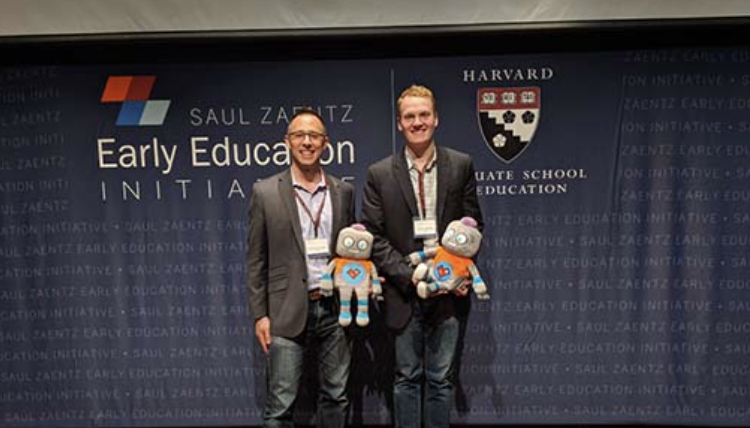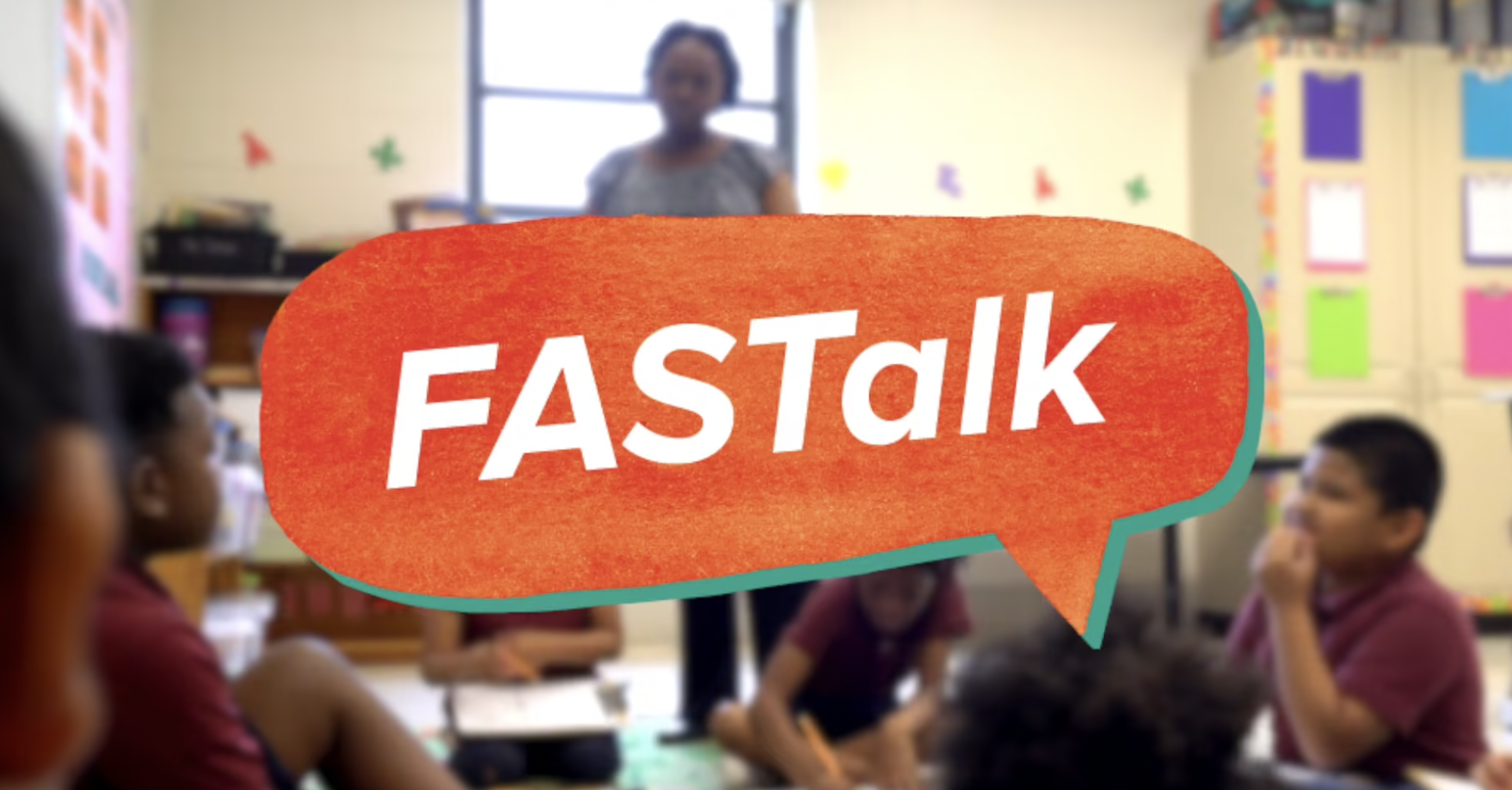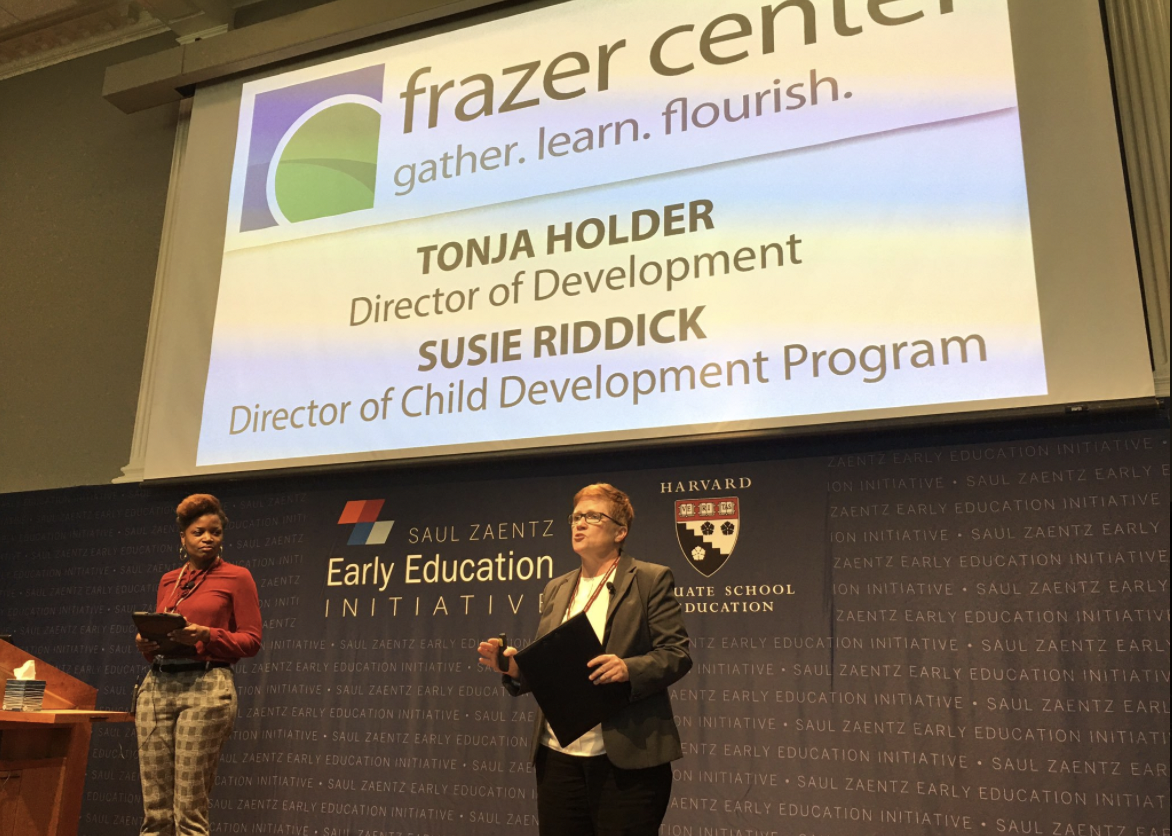Saul Zaentz Early Education Innovation Challenge
Congratulation to the finalists and winners of the 2024 Zaentz Early Education Innovation Challenge!
Why an innovation challenge?
Early education experiences and nurturing relationships serve as the foundation for healthy brain development, future learning, and success later in life. To make good on early education’s potential and promise requires innovation that supports the knowledge, professional learning, policymaking, practice, and collective action necessary to cultivate optimal early learning environments and experiences for all young children. By 2030, the United States will be home to approximately 21 million children under age five. Yet the nation has struggled both to scale early education programs and supports, and to improve and maintain their quality.
Looking ahead, there is a strong foundation on which to advance innovation, enhance equity, and drive transformative change. As a result of the COVID-19 pandemic, more and more stakeholders are recognizing how early education can support our nation’s economic recovery and societal well-being. States have passed major policy reforms and made historic investments, and advocacy groups have mobilized to keep the needs of our youngest children a priority – especially those who come from historically underserved communities.
Yet at all levels of the system, much work remains to be done, from recruiting, retaining, and supporting the workforce, to finding new ways to promote and measure children’s healthy development, to creating policy solutions that bring more and better early education opportunities to families and communities across America. Now is the time for creative, collaborative solutions that will increase early learning opportunities and drive positive outcomes for all children.
What is the Zaentz Early Education Innovation Challenge?
In its fifth year, the Zaentz Early Education Innovation Challenge will fund promising ideas that have the potential to transform early education. We are seeking ideas and approaches that promote positive outcomes at multiple levels of the early education system, including the home, classroom, programs, networks, and/or policy.
Why is the Zaentz Initiative hosting this Challenge?
The Saul Zaentz Early Education Initiative seeks to promote innovation and entrepreneurship in the field of early education. By hosting the Innovation Challenge, our goal is to seed the field of early education with new ideas, fresh thinking, and strategic approaches.
Tracks
- The Envision Track is for applicants who have an idea and are seeking to try it out in the real world.
- The Accelerate Track is for applicants who have already tried out their idea and are seeking to evaluate it, refine it, and/or expand its reach.
View 2024 Innovation Challenge Webinar Recording Here
Past Winners Highlights



2019
SayKid
In 2019, SayKid was selected as a Zaentz Innovation Challenge finalist for their plan to drive lasting, widespread change in early childhood education through developmentally appropriate tech.
2019
Family Engagement Lab
2019 Innovation Challenge winner Family Engagement Lab developed FASTalk — a family engagement tool that promotes equity + builds partnerships between teachers and historically underserved families by sharing engaging, at-home learning activities via text messages in each family’s home language.
Flourish in Frazer Forest
Bringing inclusive early learning experiences outdoors through a project-based forest learning curriculum. (Georgia)
Judging Criteria
As reflected in the application questions, solutions will be judged on the quality of the idea; your understanding of the problem and context (i.e., population served, etc.); alignment of the solution to the problem and context; and feasibility and intended impact.
Pitch Details
Once finalists are selected, they will be invited to present their solutions to a panel of expert judges and a live audience at the Harvard Graduate School of Education. Each team will have approximately three minutes to pitch its proposal to a panel of judges and an audience, followed by three minutes of questions from the judges. Up to two members of each team may make the pitch.
2024 Winners & Finalists
Accelerate Track Winners
Participants: Allyx Schiavone, Miriam Sutton
Participants: Tim Garcia, Judy Williams
Participants: Tracey Madden-Hennessey, Nicole Villanueva
Envision Track Winners
Participants: Andrea Anderson, Randa Dunlap
Participants: Susan Grove, Leigh Keener
Participants: Shannon Jones, Elizabeth Ostberg-Davis
Accelerate Track Finalists
Envision Track Finalists

Past Winners
STE(A)M Truck
Scaling track, 3rd Place
Leveraging Text Messages to Support Early Childhood Development and Parental Resilience
Scaling track, 2nd Place
Leading Men Fellowship Program
Scaling track, 1st Place
The Beautiful Stuff Project
Pilot track, 3rd Place
Louisiana Early Childhood Leaders Fellowship
Pilot track, 2nd Place
Bienvenida a ESCALERAS
Pilot track, 1st Place
Building Single Points of Entry that Serve Families and Communities
Idea track, 3rd Place
Pin Your Park: An Offtrail Lesson Planning Guide for Educators
Idea track, 2nd Place
Seeds of Learning: The New Britain Infant/Toddler Early Childhood Business Incubator
Idea track, 1st Place
Future Challenges
Sign up to learn more about future Innovation Challenges.
